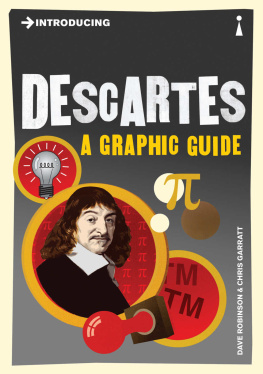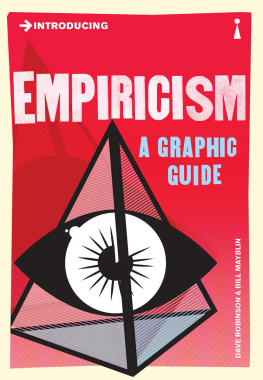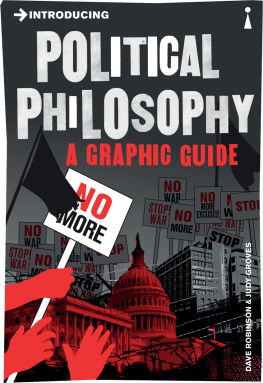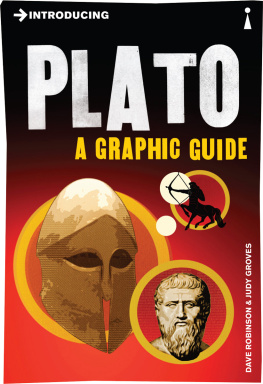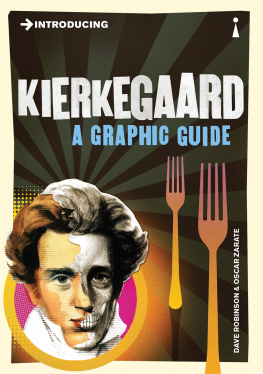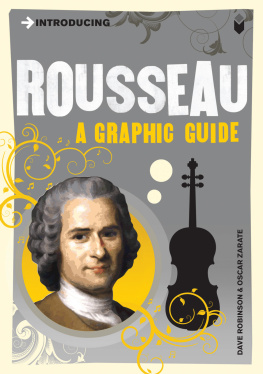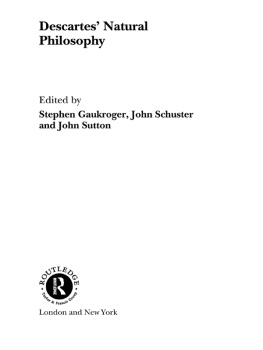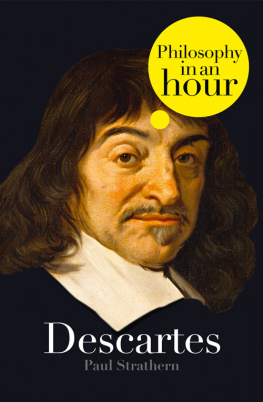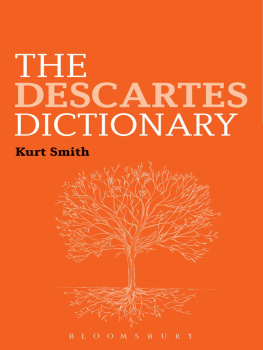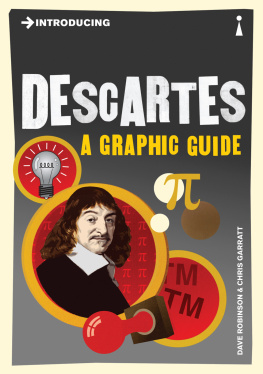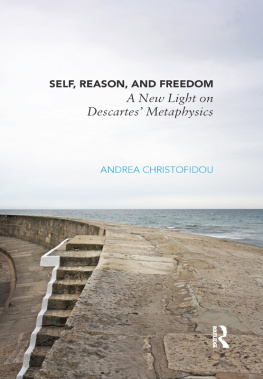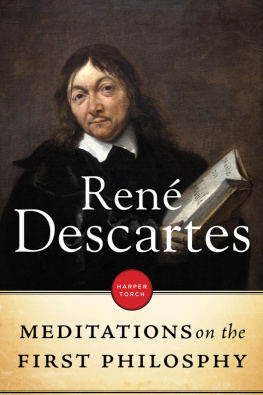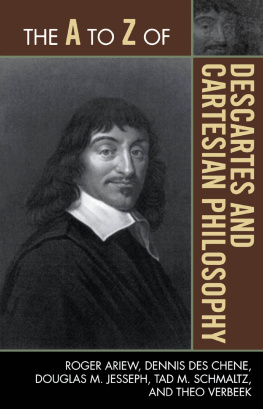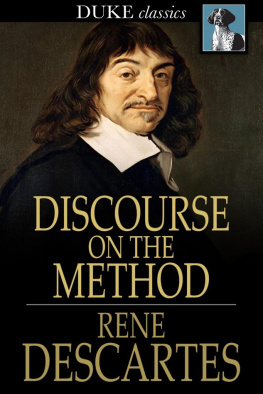Published by Icon Books Ltd, Omnibus Business Centre, 3941 North Road, London N7 9DP
Email:
www.introducingbooks.com
ISBN: 978-184831-985-1
Text copyright 2012 Icon Books Ltd
Illustrations copyright 2012 Icon Books Ltd
The author and illustrator has asserted their moral rights
Originating editor: Richard Appignanesi
No part of this book may be reproduced in any form, or by any means, without prior permission in writing from the publisher.
Contents
The Modern Beginner
Everyone agrees that modern philosophy began with Descartes. Why modern? Because he insisted on thinking for himself, rather than just accepting what he had been taught. By this method, Descartes believed he could establish the philosophical and mathematical foundations for all of human knowledge an ambitious quest which eventually turned out to be strangely personal and deeply subjective. Descartes philosophy is like a spiritual journey which he invites the reader to join, and which he always promised would produce extraordinary results
I shall bring to light the true riches of our souls, opening up to each of us the means whereby we can find within ourselves all the knowledge we may need for the conduct of life and the means of using it in order to acquire all the knowledge that the human mind is capable of possessing
Early Days and Youth
Ren Descartes was born in 1596 in La Haye, in the Touraine region of France. (The town is now called Descartes!) He was the son of a nobleman, which meant that he never had to work for a living. When he was eight, he was sent to the Jesuit school of La Flche in Anjou. At this Catholic school he learnt Greek and Latin as well as mathematics and Scholastic philosophy.
At school, I came to the conclusion that mathematics was the only subject of any real worth a view I held all of my life.
His health was poor and so he was granted permission to stay in bed every morning until 11 oclock a habit he kept to in adult life. Descartes always set aside a few morning hours for concentrated thought and devoted the rest of the day to rest and relaxation.
Shortly after leaving La Flche, Descartes wrote a book that no longer survives called The Art of Fencing, which gave detailed instructions on the different techniques and strategies necessary to beat your opponent. Descartes was said by some to have been as good a swordsman as he was a philosopher. He would have made an interesting fourth musketeer.
Descartes first published work was a small treatise on music.
I enjoyed music as much for its mathematical structures as for its pleasing sounds.
Eventually he went on to study law at the University of Poitiers and, although he qualified as a lawyer, he never practised.
The Soldier
Instead, Descartes decided to travel and see a bit of the world.
I spent my youth travelling, visiting courts and armies, mixing with people of diverse temperaments and ranks.
He was a small man, with a large head, a big nose and a rather feeble voice. Nevertheless, he became a soldier and joined the army of Maurice of Nassau of the Netherlands, and then the German army of Maximilian of Bavaria. The whole of Europe was being torn apart by the conflicts known as the Thirty Years War (1618-48). Descartes wasnt cut out for the military life he consequently absented himself from war and politics. I am a spectator rather than an actor in the comedies of life.
One reason for this was a chance meeting on 10 November 1618 in the town of Breda in Holland. Descartes had seen a placard written in Dutch and so asked a passing stranger to translate it for him. The stranger was Isaac Beeckman, who soon became a close friend.
The notice was about a geometric problem which Descartes solved with remarkable rapidity and ease.
Beeckman encouraged me to think about pursuing the life of the mind, rather than the more adventurous but futile life of a soldier.
Descartes Three Dreams
On 10 November 1619, Descartes found himself stuck in the small town of Neuburg-on-Danube. He was a rather unenthusiastic soldier of 23 en route to see the coronation of Ferdinand II in Frankfurt. But the Bavarian winter was severe and he had to postpone his journey.
the onset of Winter detained me in lodgings where, because there was no conversation to amuse me and happily having no worries or passions to trouble me, I stayed all day shut up alone in a stove-heated room, where I was completely free to commune with myself about my own thoughts.
The First and Second Dreams
The thoughts that Descartes had in this stove-heated room, surrounded by blizzards, changed the whole of Western philosophy for ever. He had the most extraordinary sequence of vivid dreams.
I dreamt I was caught by a whirlwind which tried to push me over.
I sheltered from the storm in a college, where I met an old friend who tried to give me a melon from a foreign country.
When he awoke he spent the next two hours terrified that this strange vision had been put into his mind by some evil demon.
His next dream wasnt much of an improvement he heard a huge thunderclap and found himself trapped in a room full of fire and sparks.
The Third Dream
Fortunately, his third dream was quieter. He was looking at several books by the side of his bed. There was an encyclopedia and an anthology of poems
I knew they were ordering me to devote the rest of my life to science and philosophy, rather than to soldiering.
Descartes had always been interested in mathematics and science, and his last dream told him that there was a way in which all human knowledge could be made into a unified whole. If we could see how the sciences linked together, we would find them no harder to retain in our minds than the series of numbers.
He always believed in his dream and he never gave up the quest it had set him. Because of this odd night in a cold and strange town, Descartes became the most important and influential philosopher of his time.

